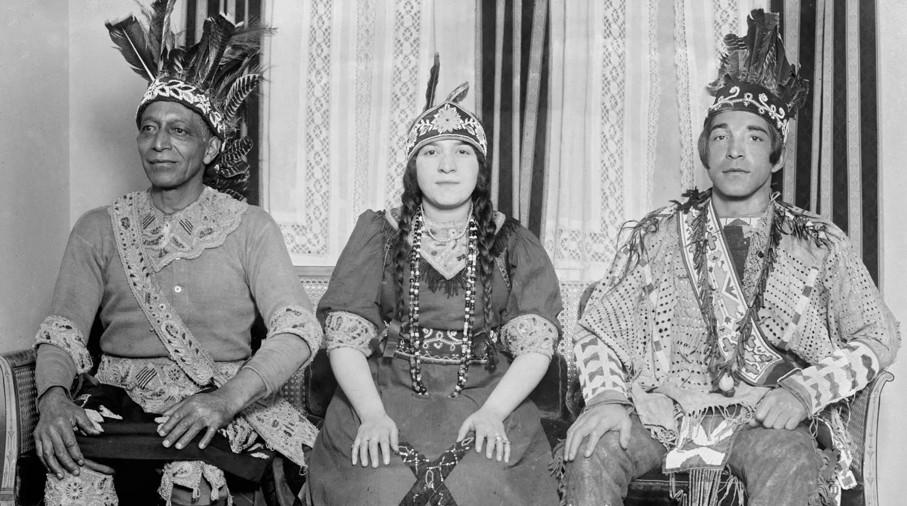
Born near LeClaire, Iowa, on February 26, 1846, William F. “Buffalo Bill” Cody’s life became synonymous with the American frontier. His early adventures included working with a wagon train at age 12, joining the Colorado gold rush the following year, and allegedly riding for the Pony Express at 15.
During the Civil War, Cody served as a scout for the Union Army’s Seventh Kansas Cavalry. In 1866, he married Louisa Frederici, and they had four children: Arta Lucille, Kit Carson, Orra Maude, and Irma Louise.
Cody gained his nickname and fame as a skilled marksman by hunting buffalo to feed Kansas Pacific Railroad workers in 1867. The following year, he became a civilian scout and guide for the U.S. Army’s Fifth Cavalry, where his expertise as a plainsman made him a valuable asset. He received the U.S. Congressional Medal of Honor for valor in 1872 (later rescinded and then posthumously reinstated), making him one of only four civilian scouts awarded the medal during the Indian Wars.
General Philip Sheridan of the U.S. Army recognized Cody’s unique appeal, seeing him as a charismatic figure with invaluable knowledge of the frontier. This made Cody an ideal “public relations windfall” for the Army of the West, which was seeking positive attention. With the Army’s support, high-profile guests like the Grand Duke Alexis of Russia enjoyed extravagant hunting trips led by Buffalo Bill and accompanied by Generals Sheridan and Custer. These outings were heavily publicized, serving to glorify both the military and Cody himself.
Simultaneously, the popular pulp fiction industry created cheap magazines that embellished the lives of Western heroes and villains, with Buffalo Bill frequently featured in these exaggerated stories. In 1872, dime novel author Ned Buntline convinced Cody to perform as himself on stage, sparking Cody’s passion for show business. He established his own performance company the following year, featuring authentic Western figures like Wild Bill Hickok and Texas Jack Omohundro to add credibility to the theatrical productions.
Amidst the intense conflict between Plains Indians and encroaching white settlers, Cody served as a scout for the Fifth Army in the summer of 1876. On July 17, 1876, shortly after Custer’s defeat at Little Bighorn, Cody’s regiment encountered a group of Cheyenne warriors. In a highly publicized incident, Buffalo Bill, still clad in his theatrical costume, killed and scalped a Cheyenne warrior named Yellow Hair, reportedly exclaiming “First scalp for Custer!” This act cemented the notion that Buffalo Bill was not merely an actor, but a genuine frontiersman.
Entrepreneur and “Great Showman”
In 1883, Cody launched Buffalo Bill’s Wild West, a spectacular show that brought him immense wealth and global recognition. This Wild West show, in various iterations, captivated audiences in the United States and Europe for three decades. During his European tours, Cody was celebrated as “Nature’s Nobleman,” a figure embodying both the ruggedness of the frontier and the virtues of civilization.
Contrary to being perceived as a relic of the past, Buffalo Bill was a forward-thinking individual. As a savvy entrepreneur, he channeled his resources into ventures aimed at fostering economic development in the West, investing in fields such as mining in Arizona, hotels in Wyoming towns like Sheridan and Cody, livestock breeding, ranching, coal and oil exploration, filmmaking, town development, tourism, and publishing.
Demonstrating his commitment to local news, he founded the Cody Enterprise in 1899, which remains the primary news outlet for the town of Cody. Leveraging his fame, Cody also became an early champion for women’s right to vote and advocated for just treatment of Native Americans.
At the dawn of the 20th century, William F. “Buffalo Bill” Cody had become a global icon, arguably the most recognizable American figure worldwide. For both Americans and Europeans, he embodied the very essence of the American West. His influence was such that presidents, from Grant to Wilson, sought his counsel on Western affairs.
Esteemed artists and writers like Frederic Remington and Mark Twain considered him a friend. Royalty bestowed honors upon him, military leaders lauded him, and prominent businessmen showered him with accolades. Cody represented the quintessential American ideal: a refined, honorable, and self-reliant individual equally adept at marksmanship and captivating audiences. As Annie Oakley observed, he possessed a remarkable simplicity, equally at ease among cowboys and kings.





